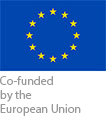Types of fraud
There are numerous forms of fraud, as scammers are very resourceful. They approach you in various ways and are becoming increasingly professional. You might think it could never happen to you. But there’s a good chance that it will. Many people fall into the various traps, and you may too.
Scammers are experts in human psychology and know exactly how to play their victims. Sometimes they even use artificial intelligence and personal data in the process. ECC Belgium has received testimonies from people who have paid from €10,000 to €500,000 to scammers.
So be careful if you:
- receive a suspicious phone call or text message about an attractive offer from a company you know, or even a company you’ve previously bought from;
- receive an invoice from a regular supplier that shows a different bank account number — scammers may have forged your invoice;
- see an online ad about low-cost cryptocurrencies or interesting products, because they may turn out not to exist;
- see a video of an influencer or YouTuber recommending a product or investment and trying to mislead you;
- search online for a particular product and click on the first link in the search results — it may lead you to a fraudulent webshop.
- ...
Types of scam
From misleading business practices to pure, aggressive scams, fraud comes in many forms. ECC Belgium has gathered information on how to recognise these practices, how to avoid falling into the trap and what to do if you do become a victim.
The following are common scams:
- Hidden subscriptions
- Phishing, smishing and spoofing
- Fake invoices
- Friendship fraud
- Online sales fraud
- Search engine fraud
- Deception via telephone
- Concert ticket scams
- Fake sales of used cars
- Holiday home fraud
- Substandard electronics
- Fake reviews
- Misleading information about investments and cryptocurrencies
- Sales of counterfeit goods


